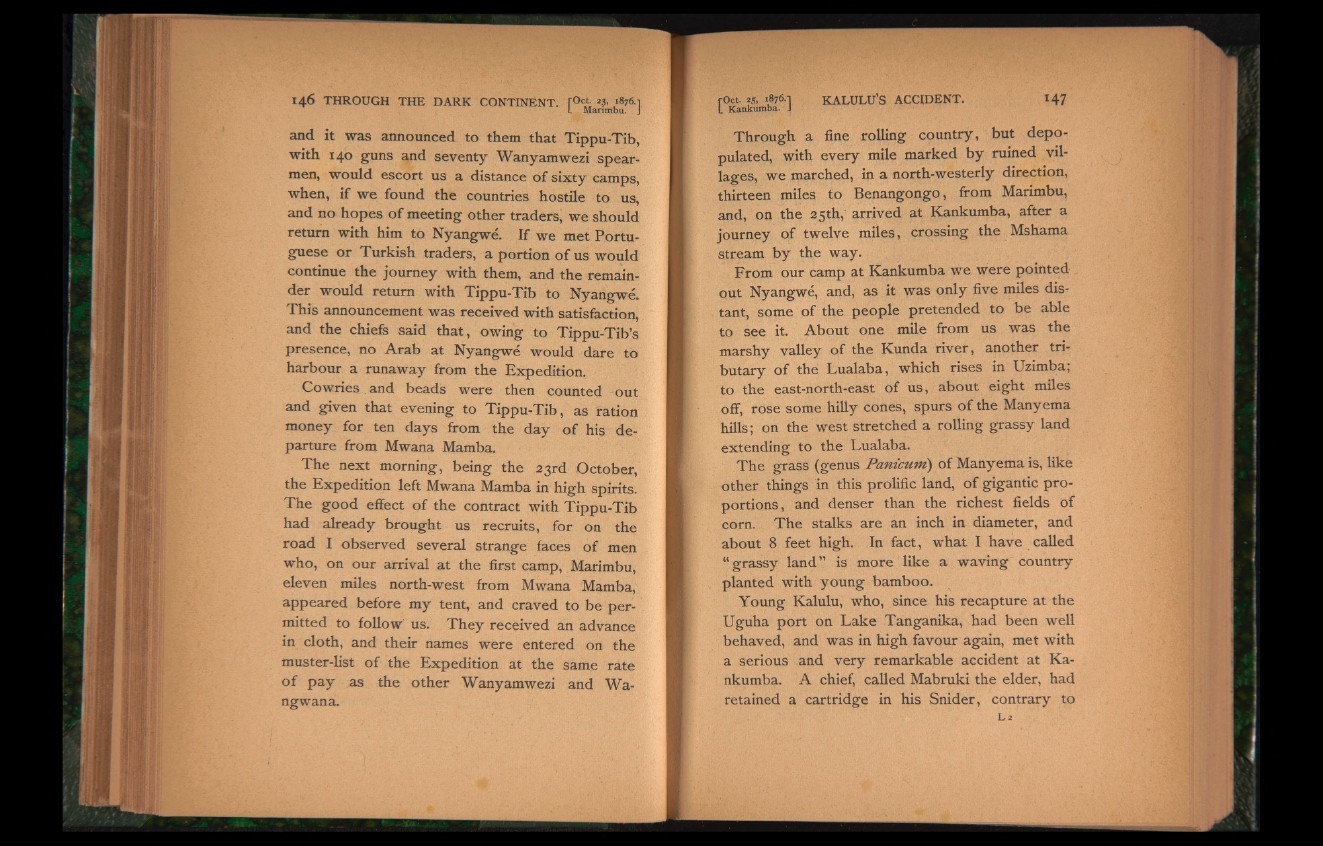
146 THROUGH THE DARK CONTINENT. r0ct l8?6-l
L Marimbu. J
and it was announced to them that Tippu-Tib,
with 140 guns and seventy Wanyamwezi spearmen,
would escort us a distance of sixty camps,
when, if we found the countries hostile to us,
and no hopes of meeting other traders, we should
return with him to Nyangwe. If we met Portuguese
or Turkish traders, a portion of us would
continue the journey with them, and the remainder
would return with Tippu-Tib to Nyangwe.
This announcement was received with satisfaction,
and the chiefs said that, owing to Tippu-Tib’s
presence, no Arab at Nyangwe would dare to
harbour a runaway from the Expedition.
Cowries and beads were then counted out
and given that evening to Tippu-Tib, as ration
money for ten days from the day of his departure
from Mwana Mamba.
The next morning, being the 23rd October,
the Expedition left Mwana Mamba in high spirits.
The good effect of the contract with Tippu-Tib
had already brought us recruits, for on the
road I observed several strange faces of men
who, on our arrival at the first camp, Marimbu,
eleven miles north-west from Mwana Mamba,
appeared before my tent, and craved to be permitted
to follow us. They received an advance
in cloth, and their names were entered on the
muster-list of the Expedition at the same rate
of pay as the other Wanyamwezi and Wangwana.
rOct. as. KALULU’S ACCIDENT. 147
L Kankumba. J
Through a fine rolling country, but depopulated,
with every mile marked by ruined villages,
we marched, in a north-westerly direction,
thirteen miles to Benangongo, from Marimbu,
and, on the 25th, arrived at Kankumba, after a
journey of twelve miles, crossing the Mshama
stream by the way.
From our camp at Kankumba we were pointed
out Nyangwe, and, as it was only five miles distant,
some of the people pretended to be able
to see it. About one mile from us was the
marshy valley of the Kunda river, another tributary
of the Lualaba, which rises in TJzimba,
to the east-north-east of us, about eight miles
off, rose some hilly cones, spurs of the Manyema
hills; on the west stretched a rolling grassy land
extending to the Lualaba.
The grass (genus Panicuni) of Manyema is, like
other things in this prolific land, of gigantic proportions,
and denser than the richest fields of
corn. The stalks are an inch in diameter, and
about 8 feet high. In fact, what I have called
“ grassy land” is more like a waving country
planted with young bamboo.
Young Kalulu, who, since his recapture at the
Uguha port on Lake Tanganika, had been well
behaved, and was in high favour again, met with
a serious and very remarkable accident at Kankumba.
A chief, called Mabruki the elder, had
retained a cartridge in his Snider, contrary to